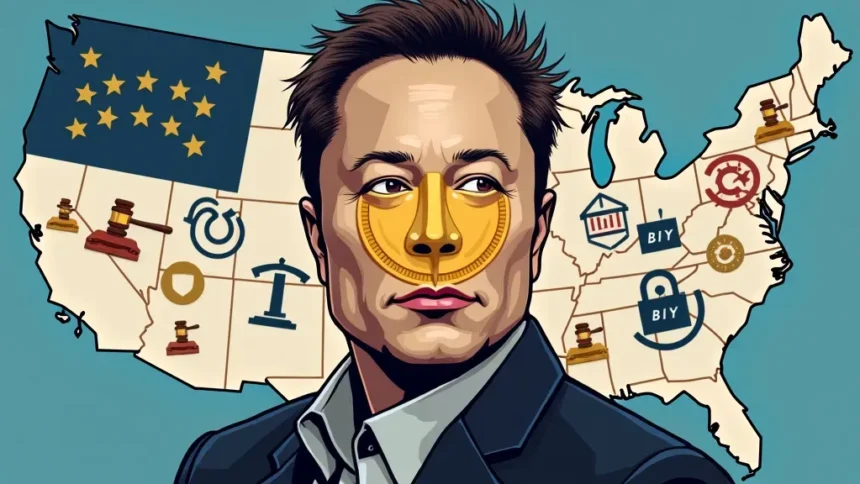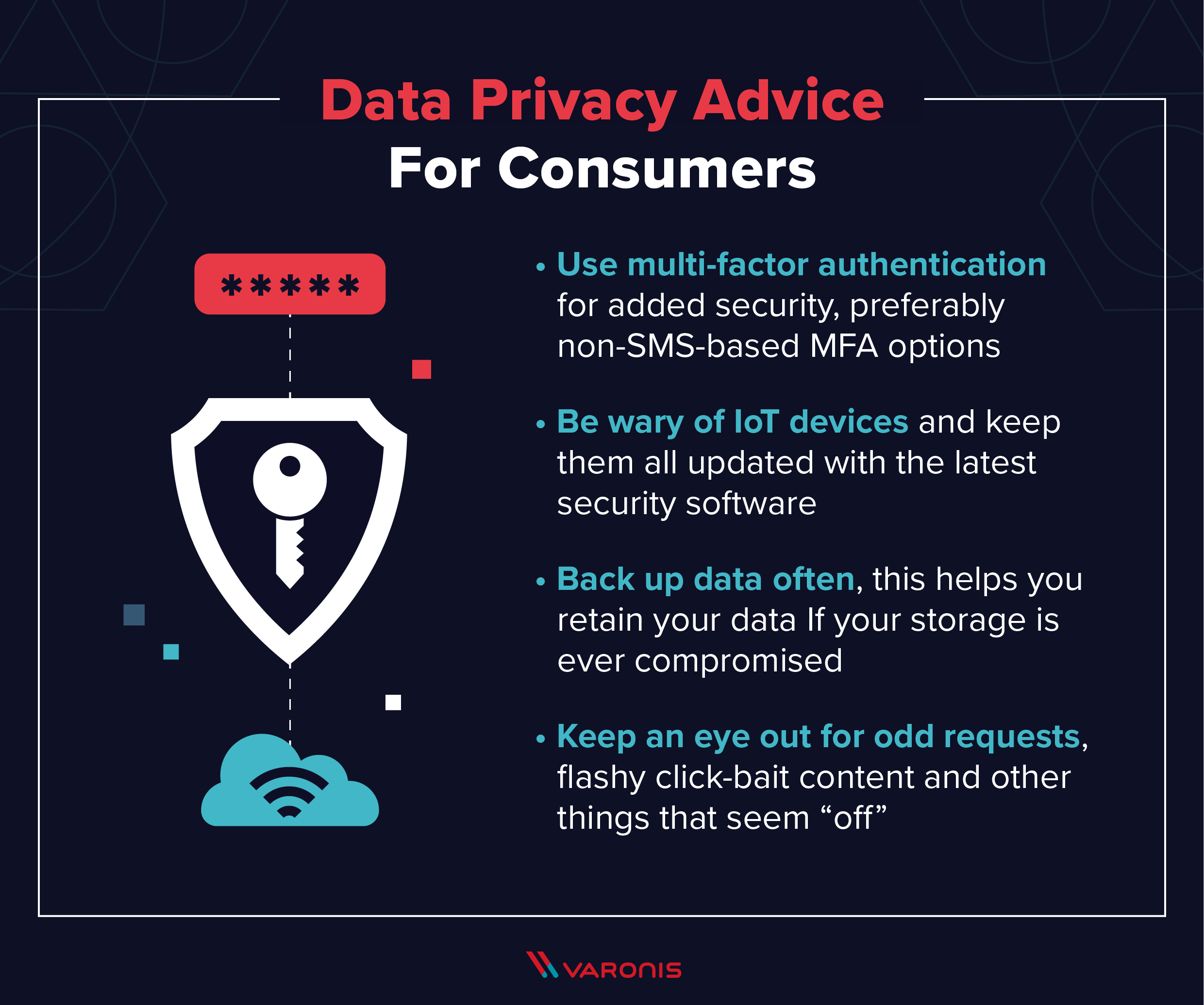In today’s digital age, data privacy has become a hot topic, and for good reason! With millions of Americans’ sensitive information at risk, the newly formed Department of Government Efficiency (DOGE) is stirring up quite a storm. Led by Elon Musk, this agency is making bold moves that could jeopardize our legal names and social security numbers, raising serious concerns about who’s really protecting our data. Are we ready to trust inexperienced staff with our privacy? Let’s dive into the implications!
The Role of the Department of Government Efficiency in Data Privacy
The newly formed Department of Government Efficiency (DOGE), under the leadership of Elon Musk, is stirring up quite a storm in the realm of data privacy. With the authority to access sensitive information like social security numbers and legal names, one has to wonder—what does this mean for the average American? While many people rely on VPNs and password managers to safeguard their personal information, DOGE’s sweeping actions are raising serious eyebrows and concerns. The potential for privacy violations looms large, leading to a growing unease about how this department will handle the data of millions.
Moreover, the implications of DOGE’s approach extend beyond just immediate data access; they touch on broader issues of public trust and security. As DOGE attempts to streamline government operations, the risks associated with inexperienced staff handling sensitive data cannot be ignored. Are we putting our most private information at the mercy of a newly minted agency? As legal challenges surface, the conversation around transparency and data protection becomes increasingly vital, highlighting the delicate balance between efficiency and privacy.
Legal Challenges to DOGE’s Data Access
As the Department of Government Efficiency (DOGE) pushes forward with its ambitious plans, legal challenges are beginning to pile up. Organizations like the Electronic Frontier Foundation (EFF) and the American Civil Liberties Union (ACLU) have stepped in, arguing that DOGE’s actions may violate the Privacy Act of 1974. It’s like David versus Goliath, where these advocacy groups are standing up against a powerful entity that many fear could misuse personal information. Are we witnessing the birth of a significant legal battle that could redefine data privacy rights in America?
These lawsuits highlight a crucial point: the public’s right to privacy is being tested in real-time. With the stakes so high, it’s not just about legal jargon; it’s about everyday people who could be affected by potential data breaches or misuse. The outcome of these legal challenges could either reinforce the protections that safeguard our information or open the floodgates for government overreach. It’s a tense moment for those invested in the future of data security and privacy rights.
Data Security Risks in the Age of DOGE
In the age of DOGE, data security risks have reached an alarming level. Imagine this: sensitive information about you—everything from your social security number to your incarceration status—could be at the fingertips of an inexperienced government employee. This scenario raises a vital question: how secure is your personal data? With DOGE’s ambitious agenda to streamline government efficiency, the potential mishandling of sensitive information poses a real threat to Americans’ privacy.
As more agencies are pressured to comply with DOGE’s directives, the need for robust data security measures has never been more critical. It’s not just about having the right technology but ensuring that the people managing this data are adequately trained and accountable. Without these safeguards in place, we might find ourselves in a precarious situation, where personal information could be exploited without any consequences. So, what can individuals do to protect themselves in this evolving landscape of data risks?
Public Concerns Over Privacy Act Violations
The formation of the Department of Government Efficiency (DOGE) has ignited widespread public concern regarding potential Privacy Act violations. As the agency delves into personal data like never before, citizens are left wondering about the implications for their everyday lives. Are we really prepared to trust a government department with such sensitive information? This uncertainty is compounded by the fact that many believe DOGE’s actions could circumvent established privacy protections.
Furthermore, the growing number of lawsuits against DOGE underscores the urgency of addressing these privacy concerns. With organizations like the ACLU taking a stand, it’s clear that this issue resonates deeply with the public. The question remains: how will the government reassure its citizens that their data is safe? Until clear answers and safeguards are implemented, the anxiety surrounding these potential violations will likely continue to loom large.
Navigating Data Privacy in a Changing Landscape
As the Department of Government Efficiency (DOGE) shakes up the landscape of data privacy, individuals are left to navigate a complex and shifting terrain. With the stakes higher than ever, many are questioning how to protect their personal information amidst growing data security risks. It’s like trying to find your way through a maze without a map—overwhelming and daunting. What tools do we have at our disposal to safeguard our data?
In this new world of uncertainty, traditional methods like VPNs and password managers may not be enough. People are increasingly looking towards legal avenues and data removal services to reclaim their privacy. But even those options come with their own set of challenges. As we confront these changes, one thing is clear: staying informed and proactive is the best defense against potential threats to our data.
Frequently Asked Questions
What is the Department of Government Efficiency (DOGE) and what is its role?
The Department of Government Efficiency, or DOGE, is a newly established agency led by Elon Musk, tasked with streamlining government operations. However, its controversial approach has raised eyebrows, as it has been directed to access sensitive data concerning American citizens, including personal details like social security numbers and legal statuses. This has sparked intense discussions about the implications for data privacy and security in the United States.
Why is there concern over DOGE’s access to sensitive data?
The main concern about DOGE’s access to sensitive data revolves around the potential violations of the Privacy Act of 1974. Critics argue that the agency’s actions could infringe on individuals’ rights to privacy, creating a slippery slope where personal information is mishandled or misused. With legal challenges from organizations like the Electronic Frontier Foundation (EFF) and the American Civil Liberties Union (ACLU), many are worried about the safeguards in place to protect their data.
What kind of legal actions are being taken against DOGE?
Several lawsuits have been filed against DOGE, primarily by civil liberties groups such as the EFF and ACLU. These lawsuits challenge the legality of DOGE’s data access practices, arguing that they violate established privacy laws. As these legal battles unfold, they highlight the growing tension between government efficiency efforts and the protection of individual privacy rights.
How do people currently protect their sensitive data from DOGE?
As the situation with DOGE evolves, individuals are finding it difficult to safeguard their personal data. Many are turning to traditional methods such as using VPNs and password managers to enhance their online security. Additionally, some are considering legal action or employing data removal services to mitigate the risks posed by DOGE’s invasive practices. However, the effectiveness of these measures remains uncertain amidst ongoing legal challenges.
What does the future hold for American data privacy with DOGE’s actions?
The future of American data privacy is indeed uncertain, especially with the ongoing scrutiny of DOGE’s operations. As lawsuits pile up and public concern grows, there is a pressing need for transparency and accountability within the agency. The outcome of these legal proceedings could set crucial precedents that shape how personal data is handled in the government sector, ultimately determining the extent to which citizens can trust that their information is secure.
Data privacy is under serious threat as the new Department of Government Efficiency (DOGE) takes a controversial approach to handling sensitive information. With Elon Musk at the helm, DOGE is pushing for the dismissal of thousands of federal employees, while gaining access to personal data like social security numbers and legal names. This has sparked legal battles led by organizations like the EFF and ACLU, arguing DOGE’s actions may breach the Privacy Act of 1974. As these lawsuits unfold, many Americans are left in a lurch, wondering how to safeguard their personal information against potential misuse.
What do you think about DOGE’s move? 🤔 Drop your thoughts below and check out more insights on data privacy! Let’s spark a convo! 🚀😃🔥












